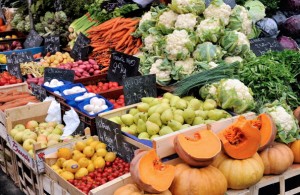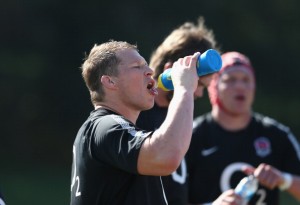
Sugar hit: are you addicted to sweet stuff? It could affect your performance on the pitch if you are
By Bea Asprey, Rugby World Staff Writer
SUGAR HAS been in the headlines a lot recently. Is it the new tobacco? Should we eat it at all? And what does all this mean for rugby players? We asked elite sports nutritionist Matt Lovell, who works with the RFU as well as Tottenham and Manchester City, for some advice.
RW: Why is too much sugar so bad for us?
ML: I believe that the obesity epidemic is largely down to the amount of sugar we have in our diets. There’s obviously an activity component to it as well but if you look at the stats, over the last 25 years we’ve eaten more slightly more sugar, fructose and less fat, and consistently got fatter and fatter. Diabetes has also risen as well because people don’t eat enough vegetables and don’t eat the right kinds of fats.
RW: What’s the science behind all this?
ML: Sugar is a collective name for a group of carbohydrate compounds. If you break down a green bean enough, you’d get glucose, but in a sports drink there may be 50g of refined glucose. You never find this naturally.
The primary reason sugar is so bad is because it drives our insulin levels up, and fat doesn’t. Insulin is a hormone that increases the amount of fat we store, and makes it more difficult to break it down when levels remain high.
RW: Which foods contain a lot of sugar?
ML: All processed foods are laden with sugar. And by that I mean pretty much anything in a box. Breakfast cereals, ready meals, frozen food, stir-in sauces, fruit yoghurts, smoothies, pizzas and of course biscuits, cakes and confectionary.
What about low-fat foods, I hear you ask? Well, they’re also bad because they’re almost always high in sugar. Just look at the ingredients when you next wander round the supermarket. The only low fat food I’d recommend you eat is low-fat pesto, and low-fat mayonnaise.
RW: What, there’s sugar in pizza?
ML: Yep, we get it through refined wheat. We’ve been using this more and more since the industrial revolution, because we want to store foods and make them last longer. We’ve ended up with high levels of sugar, fat and salt in our food. It’s an addictive combination, and then you add preservatives, additives and MSG and it makes it even more addictive. It’s a real nightmare!
RW: Are there other foods that contain more sugar than we might realise?
ML: Yes, we call them stealth sugars. Things like fruit smoothies have loads of sugar in them, and if you drink more than two and a half cans of fizzy pop a day, it can increase your liver fat, which is not good.
RW: Why have these things crept into our diet?
ML: We shop on price, and eat foods that are easy to prepare. In addition, the nation is obsessed with cereal, and most people eat white bread over wholemeal, which is terrible for you. In fact many people do better off wheat than on it.
RW What foods and drinks should we avoid?
ML: Fizzy drinks, smoothies, fruit juice, fruit yoghurts, cakes and pastries, and probiotic drinks. Some probiotic yoghurt drinks contains 17g of sugar!
RW: Is sugar ever good for you?
ML: Yes. Fruit sugar, or fructose, has little impact on the blood. So when eaten in small amounts, according to activity patterns, fruit is fine. Some sugar substitutes are good too, like Stevia and Xylitol. They taste sweet without causing a rise in blood sugar.
Stealth sugars can be eaten as a treat, or if you’re trained yourself into the ground, doing exercise two or three times a day.
Sugar also becomes essential for longer events, especially things like triathlon. Of course you can burn fat too but high intensity, long duration activity needs to be fuelled properly with sugars during the event.
RW: What does this mean for rugby players?
ML: Most rugby players are pretty clued up about their diets these days. They need certain sugars to replenish those they’ve lost after playing and training. In fact, some are so cautious about what they eat that they could take on a bit more sugar post-exercise to aid their recovery.
They need to eat mixed sources of slow-release carbs after exercise, like brown rice, sweet potatoes, wholewheat pasta and root vegetables.
Before you exercise, a bowl of porridge is good with some yoghurt and berries, and a tiny spoonful of honey. I’d like to encourage people to think of sugar as fuel. It’s like the petrol you put in your tank.
Sugar during exercise can be good as well. If you’re training hard, it’ll help increase the time to exhaustion – in other words, make you able to train harder for longer. Exercise does change the rules, but remember that if you’re training for an hour or less it really isn’t necessary to take on any sugars or gels during that time.
RW: What will happen to your performance if you eat too much sugar?
ML: You’ll probably get fat, and it’ll be like you’re carrying a dead weight around the pitch with you!
RW: What should be done to help people cut down on sugar?
ML: Given the rise in the obesity epidemic, the government does have a responsibility to do something. The message consumers are getting through advertising and marketing is wrong.
Something everyone can do, though, is to make more food from scratch. People find it time consuming chopping up their own fresh vegetables, but you can drop 2% of your body fat by cutting out things like sauces from jars. Try it!







